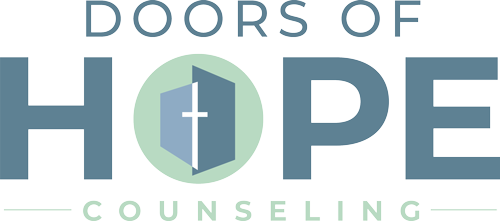Written by Kelsey Bertram, Graduate Student Counseling Intern
As human beings, we love to know. We love answers, plans, closure, and clear directions. Knowing feels safe — like we can finally relax once everything makes sense. But what happens when we can’t know? When the question doesn’t have a clear answer — or when the answer might never come? That’s often where anxiety begins.
The Trap of Needing to Know
When something feels uncertain, our brains go to work:
“Did I make the right choice?”
“What did that text really mean?”
“What if something bad happens?”
“How do I know I’m a good person?”
At first, seeking answers feels responsible, even protective. But for many people (especially those with anxiety or OCD), the search for certainty becomes an endless loop. We check, we Google, we replay conversations, we ask for reassurance. And for a moment, we feel better. But soon, the doubt returns — stronger than before.
That’s because certainty is addictive. Every time we try to get it, we teach the brain: “Uncertainty is dangerous — I need to fix it right now.” The more we chase reassurance, the less tolerance we build for life’s inevitable “maybes.”
The Reality: Life Has Always Been Uncertain
Here’s the gentle truth: we never really had certainty to begin with. We just got better at pretending we did. Life has always been full of unknowns — in our relationships, our health, our future, our meaning. The only difference is that sometimes, we notice it more. When we face loss, trauma, or anxiety, uncertainty becomes louder. But the goal isn’t to silence it — it’s to learn how to live well and meaningful alongside it.
Acceptance: Making Space for Not Knowing
This is where Acceptance and Commitment Therapy (ACT) offers something radical:
You don’t need to control uncertainty — you can make space for it.
Acceptance doesn’t mean liking the unknown or giving up on wisdom. It means saying: “Even though I don’t know what will happen, I can still take the next right step.”
Instead of trying to think your way to safety, ACT helps you act your way toward meaning — choosing behaviors that align with your values, even while uncertainty whispers in the background.
You can still:
Be kind, even when unsure how others see you.
Be brave, even without guarantees.
Be present, even when the future feels blurry.
What It Looks Like in Practice
Imagine two paths:
- The Certainty Path:
You spend energy analyzing, checking, or replaying thoughts, hoping for relief. But the peace never lasts. - The Acceptance Path:
You notice the pull to know, breathe, and gently say, “I don’t have to figure this out right now.” Then you redirect your attention to something meaningful: making tea, walking your dog, calling a friend.
One path feeds anxiety; the other builds peace, flexibility, and self-trust. Freedom is not obtained by finding every answer, but by learning we can live meaningfully without them.
The Paradox
The more you allow yourself not to know, the calmer your mind becomes. Certainty stops feeling like a demand, and more like a gift — one that arrives naturally, in its own time. You realize that peace was never hidden in the answers — it was in your ability to be present, curious, and kind to yourself in the middle of the unknown.
You don’t have to know everything to live a full, connected, and peaceful life.
You just have to practice staying here — breathing, noticing, choosing what matters most — again and again.
That’s where real freedom lives.
If This Resonates
Here at Doors of Hope, we help clients learn how to find calm and meaning even in life’s most uncertain moments. Through approaches like Acceptance and Commitment Therapy (ACT), ERP, and mindfulness-based counseling, we support you in releasing control and reconnecting with what matters most. If you’re ready to stop chasing certainty and start building peace, reach out today.

